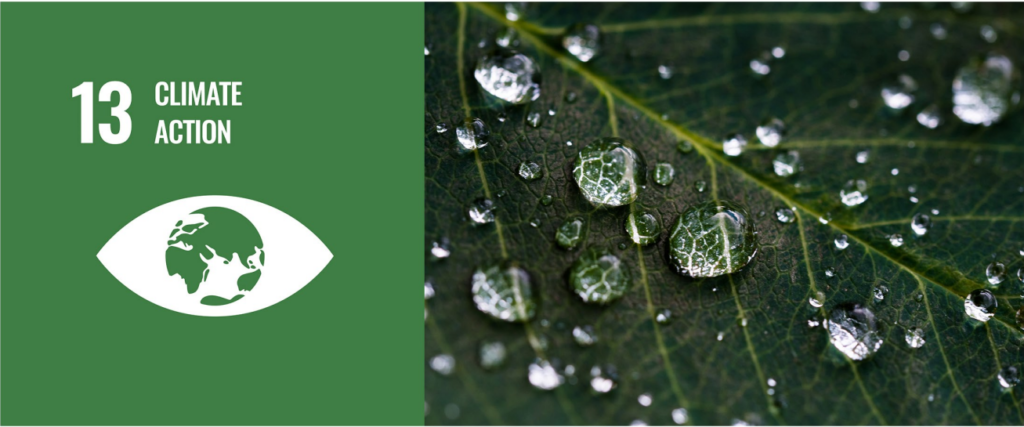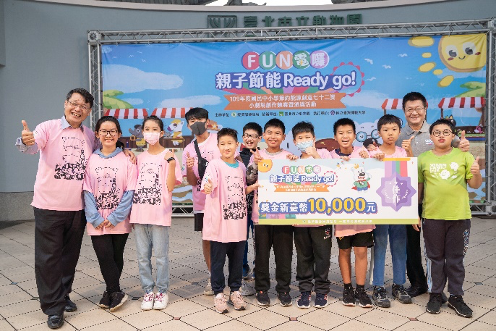

13.1 Spirit of the SDG and the University’s Philosophy
The UNESCO “Global Education Monitoring Report 2020: Inclusion and Education” pointed out that despite differences between various regions, most higher education institutions promote sustainable development and are committed to producing students who understand the global challenges and become active participants and role models in implementing the principles of sustainable development. This can be promoted by reducing an organization’s environmental footprint and having close contacts with the community and good governance (UNESCO, 2020).
Climate change covers a wide range of topics. In terms of overall institutional governance, the University established the NTNU Committee for Sustainable Development to take stock of energy use in the University. This was done to promote and build polices compliant with low-carbon energy utilization, facilities, and campus environment.
In terms of public policy promotion, the University cooperated with the Energy Bureau to guide elementary and high schools to promote energy education programs, with NTNU staff going to elementary and high schools to conduct teacher-training workshops; combined with the 12-year national basic education syllabus, county and city environmental education counseling groups, and inter-ministerial associations. This cooperation supports the teaching of climate change and the development of teaching materials to achieve this. In terms of community participation, the “Xu Youxiang Cup-Taiwan Young Students Physics Debate Competition” was co-organized with the Xu Youxu Foundation for Taipei Science Day, which involved students in all school levels in Taipei City, and integrated natural sciences, mathematics, and information and technology activities into community life, cultivated and shaped scientific talent, increased the interest of students, parents, and the general public in participating in scientific activities, and hence promoted the popularization of science among the populace. In terms of academic education, the University signed a cooperation agreement with the Central Meteorological Administration to nurture earth-sciences and technology talent, popular-science education, and research and development projects. The Department of Earth Sciences at NTNU has integrated various domestic industry and academia units to construct a heavy rain forecasting system for Taiwan, and cooperates with international organizations controlling satellites to carry out satellite telemetry in Taiwan and neighboring countries for disaster prevention applications and other related topics, thereby enhancing Taiwan’s practical capabilities in climate prediction and disaster prevention.
13.2 Achievements
In line with the government’s 12-year national basic education policy, the University has developed environmental education topics and proposed five learning themes: environmental ethics, sustainable development, climate change, disaster prevention and rescue, and sustainable use of energy resources. SDG 13 actively promotes local climate education programs, environmental education counseling groups in counties and cities, meeting and supporting the climate-change teaching needs of teachers, and the development of climate-change teaching materials. The “Guiding Primary and Secondary Schools to Promote Energy Education Program” by the Energy Bureau of the Ministry of Economic Affairs promotes the teaching of energy education by elementary- and high-school teachers. In addition to cultivating teachers, the research performed at NTNU on extreme climates uses model assessments to evaluate the possible impact of climate change on the East Asian climate and monsoons, and especially extreme weather in Taiwan (e.g., typhoons, heavy rains, and droughts). The ability to accurately simulate and interpret the effects of climate change on Taiwan requires improvements to the quality and quantity of meteorological technology research and development and also the cultivation of the necessary talent.
Excellent environmental education promotes effective strategies for addressing climate change
The University provides guidance to elementary and high schools about promoting energy education programs, such as how to incorporate energy and climate-change issues into curriculum teaching, promoting long-term energy education in schools, and also increasing society’s interest in energy development and applications, thereby shaping the consensus of the populace regarding increasing revenue and reducing expenditure. The team handles climate-change research and practical workshops involving high-school teachers, and has produced a manual for promoting climate-change education and disaster prevention to assist elementary and high schools in developing teaching materials and teaching activities. The University held the “Enhancing and Teaching Plan Development Workshop on Climate Change Education for Elementary Schools and Middle Schools,” and also a competition on designing a teaching module for climate-change education. The approach focuses on providing education on sustainable development related to climate change and addressing climate change from the perspective of SDGs.
Regularly holding events to increase public awareness of science
The University cooperated with the Education Bureau of Taipei City Government to organize the Taipei Science Day event, combining activities such as the “Science Train,” “Science Week for All,” “Taipei Junior High and Elementary School Excellence Science Education Program,” and “Taipei Junior High and Elementary School Natural Field Guidance Group.” Cooperation between the academic community and the city government, and the community in providing various science popularization activities will help to promote science “belonging to the public” and integrating it into local culture, thereby improving the quality of popular-science education in Taiwan. In addition to cooperating with government units, NTNU and the community are also actively cooperating to promote the knowledge of popular science among the populace. The Department of Physics at NTNU and the Xu Youxu Foundation jointly organized the “Xu Youxu Cup-Taiwan Youth Student Physics Debate Competition.” Teacher Zhang Zichao from the NTNU Environmental Education Institute served as a consultant for the Circuit Board Environmental Public Welfare Foundation, and reviewed related environmental education issues (e.g., climate-change education), combined with SDGs for curriculum development, entered the “ECO Master Campus Sharing Session” at elementary and junior high schools, and extended this to “Technology in Life” at high schools and to “Environmental Sustainability, Green Future” at universities. To date more than 2,300 sessions have been provided, involving more than 130,000 people.
Excellent research achievement in the climate field
Teachers in the Department of Earth Sciences as well as some other departments of the University perform research related to extreme climates, and use model assessments to establish the key capabilities required for simulating and interpreting the effects of climate change in Taiwan. Director Ye Tianjiang of the Central Meteorological Bureau of the Ministry of Communications has particularly thanked many professors at the University for their assistance and cooperation over recent years in furthering the understanding of climate change, numerical weather forecasting, historical data research in meteorological science and technology, and the analysis of seismic data. In addition, the University has signed a related cooperation agreement with the Meteorological Administration. It is hoped that the cooperation between meteorological technology research and professional skills of the staff will benefit from it. The Meteorological Administration also looks forward to further utilizing the University’s researchers’ expertise, combined with the practical work of the Meteorological Bureau, to increase public understanding in the field of geosciences, and make it easier to apply meteorological information to the daily lives of junior-high-school students and the general public.
13.3 Featured Highlights
13.3.1 Counseling elementary and high schools to promote energy education programs
The University is incorporating energy and climate-change issues into curriculum teaching, promoting long-term work into energy education in schools, and also increasing society’s interest in energy development and applications, thereby shaping the consensus of the whole populace regarding increasing revenue and reducing expenditure.
Related Media Coverage


13.2.2 Taipei Science Day integrates science activities into the community
The University cooperated with the Department of Education, Taipei City Government to organize the Taipei Science Day event, combining the strengths of academia with the city government, and the community in providing various types of science activities. It is hoped that since science belongs to the general public, it can be integrated into the local culture to promote the quality of science education in Taiwan.


